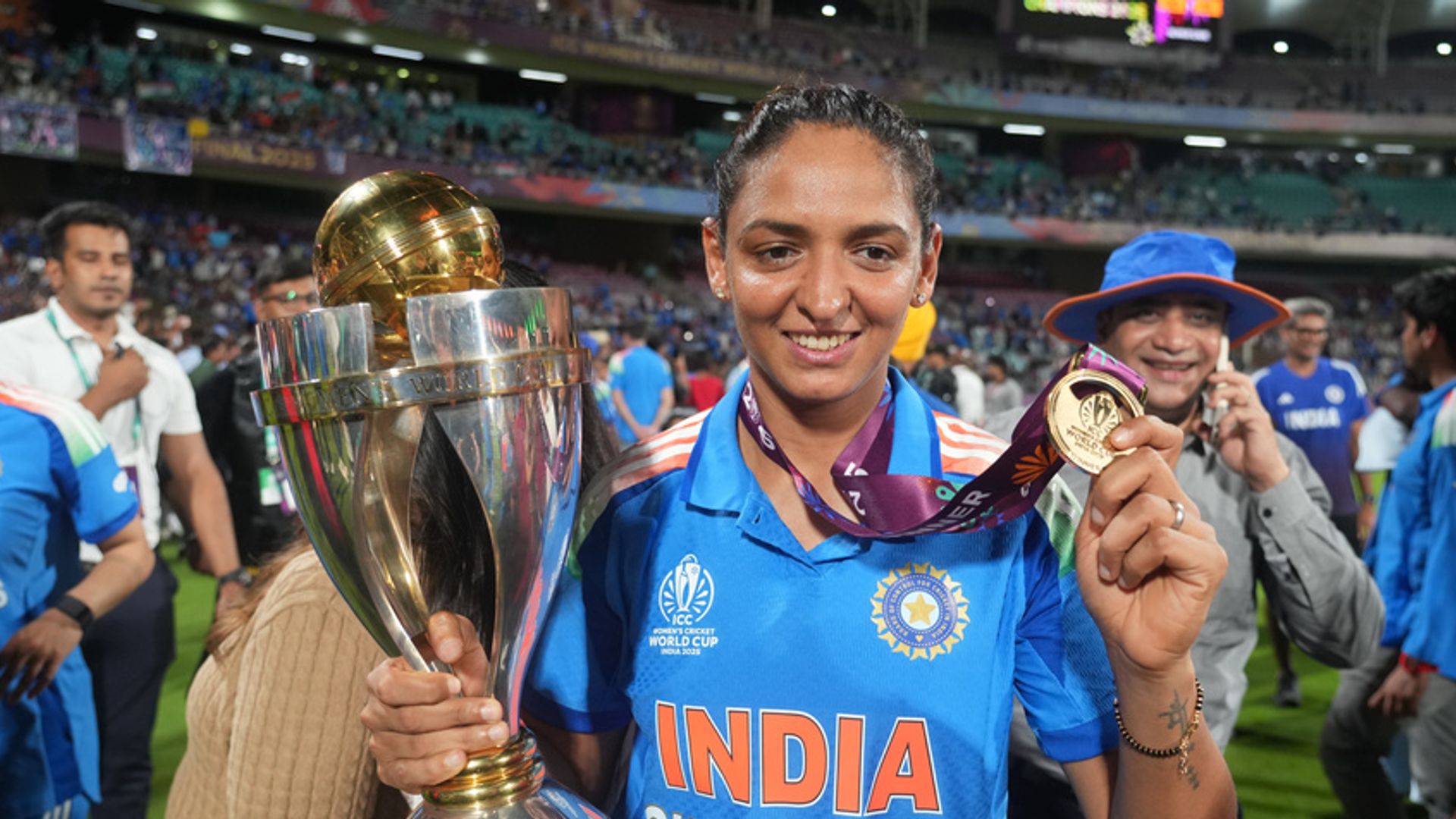India’s Women’s Cricket Victory Marks the Resurrection of a Giant, Shattering All Doubts About Female Empowerment in Sports and Society
In the realm of international sports, few events resonate as profoundly as a World Cup victory, and India’s recent triumph in the Women’s Cricket World Cup against South Africa has not only etched its name in history but also ignited a firestorm of debate regarding gender, power, and national identity. Nasser Hussain’s assessment of the Indian women’s team as an “unstoppable force” carries significant implications, reflecting societal shifts that extend far beyond the boundaries of a cricket pitch.
Historically, cricket in India has been often described as a religion, with men traditionally occupying the spotlight. The narrative has shifted dramatically in recent years, particularly with the rise of women’s cricket. The Indian women’s team, which fought tirelessly through the trials of limited resources and societal expectations, has now showcased its prowess on the world stage. Their victory is not merely sporting success; it is emblematic of a revolution in gender perceptions within a country long characterized by patriarchal norms.
The triumph against South Africa is a pivotal moment, akin to landmark events in civil rights movements. Much like the women’s suffrage movement that reshaped political landscapes, the success of the Indian women’s cricket team is reshaping cultural narratives. It serves as a clarion call for empowerment, encouraging young girls to envision sports not just as a hobby but as a viable career path, fostering dreams that were once suppressed.
India’s journey to the World Cup final reveals a tapestry woven with challenges. The women’s team has historically been overshadowed by its male counterparts, often receiving scant media coverage and limited investment. Yet, grassroots movements, coupled with the evolving attitudes of a more progressive society, have led to increased visibility and financial support for women’s sports. Media coverage has surged, with broadcasters now recognizing the potential audience that female sports can command. This is not merely about cricket; it is about creating a platform for women in sports across all disciplines.
Moreover, the implications of their victory transcend sports. It challenges societal norms and biases that have persisted for generations. For Indian women, the cricket field becomes a battleground for rights, dignity, and equality. The success of the national team resonates with the larger discourse on gender equality, echoing through households and communities, stirring conversations that challenge long-held beliefs.
As the team’s captain hoisted the World Cup trophy, it was a symbolic act resonating with power and resilience. The attention garnered by their victory highlights the potential for women to break barriers and assert their place in areas historically dominated by men, not only in sports but in all professional arenas. The triumph also fosters a sense of unity among the diverse population of India, transcending regional and linguistic divides that often characterize the country.
A critical examination of the cricketing infrastructure supports the narrative of change. The Board of Control for Cricket in India (BCCI) has made strides towards nurturing women’s talent by investing in facilities and training programs. Initiatives like the Women’s Premier League have catalyzed a surge in talent identification and development, signaling a commitment to creating a sustainable future for women’s cricket in India. The financial backing is essential to ensure that young girls aspiring to play cricket can do so without the constraints faced by previous generations.
This victory also brings to the forefront discussions around sponsorship and commercial viability. The financial landscape for women’s sports is evolving, with brands looking to align themselves with athletes who embody the spirit of determination and excellence. As these athletes gain recognition, the potential for lucrative sponsorship deals increases, paving the way for practitioners and aspiring sportswomen alike to seek careers in athletics.
Critically, the global stage is watching. The Indian women’s cricket team’s ascent reflects an emerging pattern of female empowerment worldwide. Countries across various continents are witnessing similar movements in women’s sports, as voices grow louder for equality and representation. The intersectionality of gender and sport emphasizes a collective struggle, drawing attention to the need for systemic changes within sporting organizations globally.
Looking to the future, one can only speculate on the potential impact of this World Cup victory. It remains to be seen whether this achievement will catalyze substantive changes within Indian society, leading to a broader recognition of women’s roles, rights, and capabilities across all sectors. The narrative is poised to evolve, with the team serving as role models for future generations of female athletes, embodying a spirit of resilience and determination.
The sporting landscape is undoubtedly shifting, and as India’s women make history, their legacy will inspire a new generation to challenge barriers, highlighting the importance of representation and support for women in sports. The impact of this World Cup victory transcends cricket and gender; it prompts a reevaluation of societal roles and expectations, encouraging dialogue on equity, opportunity, and the transformative power of sport.

